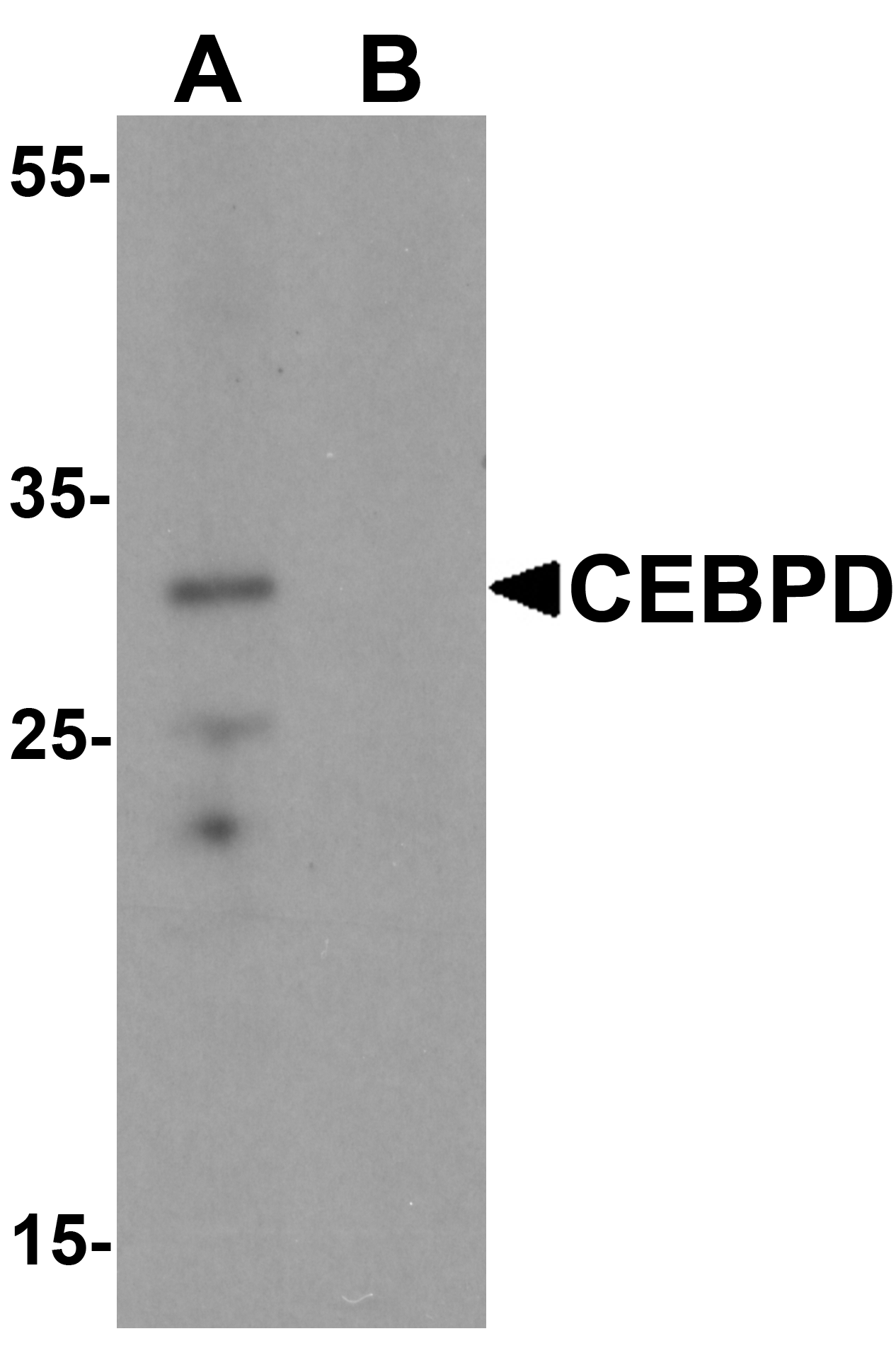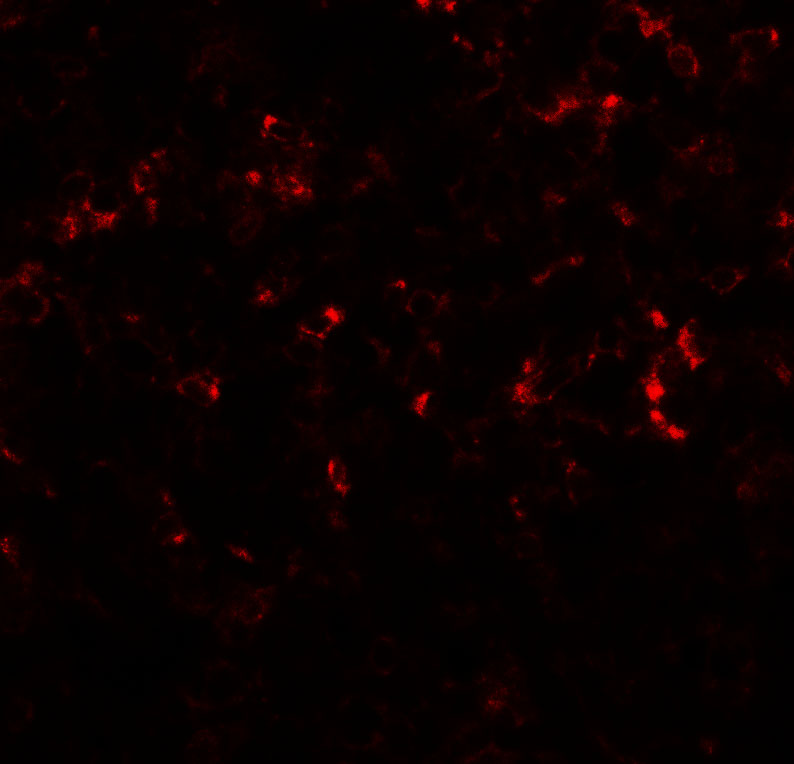Antibody Clonality:
Polyclonal
Applications:- Enzyme-Linked Immunosorbent Assay (ELISA)
- Immunofluorescence (IF)
- Western Blot (WB)
1 / 2

2 / 2

No additional charges, what you see is what you pay! *
Stay in control of your spending. These prices have no additional charges, not even shipping!
* Rare exceptions are clearly labelled (only 0.14% of items!).
Multibuy discounts available!
Contact us to find what you can save.
This product comes from:
United States.
Typical lead time:
14-21 working days.
Contact us for more accurate information.
- Further Information
- Documents
- Related Products
- Show All
Further Information
CEBPD Antibody: CELF, CRP3, C/EBP-delta, NF-IL6-betaNuclear factor NF-IL6-beta, NF-IL6-beta
CEBPD antibody can be used for detection of CEBPD by Western blot at 0.5 - 1 μg/mL. For immunofluorescence start at 20 μg/mL.
Antibody validated: Western Blot in rat samples and Immunofluorescence in human samples. All other applications and species not yet tested.
CEBPD Antibody: CCAAT enhancer binding proteins (CEBPs) are a family of transcription factors that all contain a highly conserved, basic-leucine zipper domain at the C-terminus that is involved in dimerization and DNA binding. At least six members of the family have been isolated and characterized to date (CEBP alpha to CEBP zeta). CEBPD is a leucine zipper (LZ) DNA-binding protein that regulates gene expression in a variety of tissues including liver, adipose, lung and intestine. CEBPD is an important transcriptional activator in the regulation of genes involved in immune and inflammatory responses and has been reported to possess many tumor suppressor-like properties.
- Williams SC, Cantwell CA, Johnson PF, et al. A family of C/EBP-related proteins capable of forming covalently linked leucine zipper dimers in vitro. Genes Dev.1991; 5:1553-67.
- Umek RM, Friedman AD, and McKnight SL. CCAAT-enhancer binding protein: a component of a differentiation switch. Science 1991; 251:288-92.
- Ramji DP and Foka P. CCAAT/enhancer-binding proteins: structure, function and regulation. Biochem. J. 2002; 365:561-75.
- Johnson PF, Landschulz WH, Graves BJ, et al. Identification of a rat liver nuclear protein that binds to the enhancer core element of three animal viruses. Genes Dev. 1987; 1:133-46.
CEBPD Antibody is supplied in PBS containing 0.02% sodium azide.
1 mg/mL
Unconjugated
Optimal dilutions/concentrations should be determined by the end user. The information provided is a guideline for product use. This product is for research use only.
Predicted species reactivity based on immunogen sequence: Bovine: (100%), Sheep: (100%)
Rabbit polyclonal CEBPD antibody was raised against an 18 amino acid peptide near the carboxy terminus of human CEBPD.
The immunogen is located within amino acids 170 - 220 of CEBPD.
1052
CCAAT/enhancer binding protein (C/EBP), delta
CEBPD
homo sapiens
Liquid
PREDICTED MOLECULAR WEIGHT:
30 kDa
NP_005186
28872798
CEBPD Antibody is affinity chromatography purified via peptide column.
Immunology
Multiple transcript variants encoding different isoforms have been found for this gene.
P49716
Optimal dilutions for each application to be determined by the researcher.




